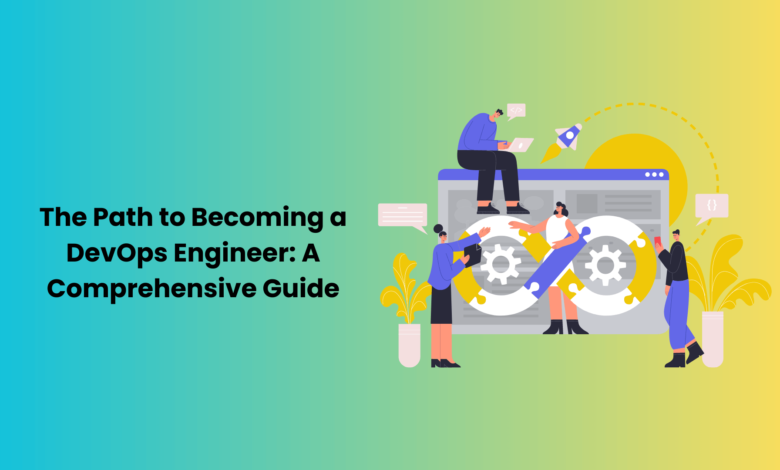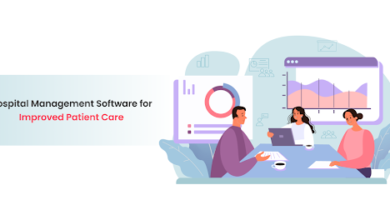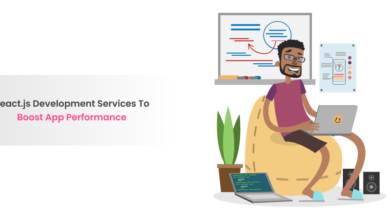The Path to Becoming a DevOps Engineer: A Comprehensive Guide

The work of a DevOps engineer has grown more important in the dynamic world of software development and IT operations. DevOps engineers bridge the gap between the development and operations teams, guaranteeing smooth cooperation and effective product deployment. If you want to be a DevOps engineer, you’re on a rewarding and interesting professional path. This detailed tutorial will lead you through the processes of How to Become a DevOps Engineer and emphasise the need to acquire DevOps Certification to authenticate your competence in this sector.
Table of contents
- Understanding the Role of a DevOps Engineer
- Essential Skills and Knowledge
- Educational Background and Learning Path
- The Significance of DevOps Certification
- Steps to Obtain DevOps Certification
- Conclusion
Understanding the Role of a DevOps Engineer
DevOps refers to a collection of practices and ideas that emphasise collaboration, automation, and continuous delivery in order to speed up the software development and deployment process. A DevOps engineer is responsible for creating, implementing, and maintaining the tools and systems that allow for continuous integration, delivery, and deployment. They concentrate on work automation, system performance monitoring, and promoting smooth communication between development and operations teams.
Essential Skills and Knowledge
Here are the essential skills and knowledge:
- DevOps engineers should have a solid foundation in programming languages and software development practices to comprehend the development lifecycle and cooperate successfully with developers.
- System administration, comprising server setup, networking, and security, is critical for managing and maintaining the infrastructure.
- Knowledge of cloud computing platforms such as AWS, Azure, or Google Cloud is required for establishing scalable and robust cloud infrastructures.
- DevOps engineers should know how to use automation tools such as Jenkins, Ansible, Puppet, or Chef to simplify repetitive processes and boost productivity.
- Containerisation technologies such as Docker and container orchestration systems such as Kubernetes are useful for routinely managing and delivering applications.
Educational Background and Learning Path
Although not mandatory, obtaining a degree in computer science, information technology, or a related field can provide a strong foundation for pursuing a career in DevOps. Many online courses and tutorials address various DevOps ideas, tools, and technologies. You may explore subjects at your own speed with self-paced learning. Gaining practical experience is crucial in becoming a proficient DevOps engineer. Participate in personal projects, internships, or open-source initiatives to obtain real-world experience.
The Significance of DevOps Certification
DevOps Certification verifies your knowledge and skills in DevOps practises, tools, and techniques, providing you with a competitive advantage in the job market. DevOps certification can lead to more work prospects and greater pay. Employers seek qualified experts who can contribute immediately to their teams. DevOps Certification is widely recognised and regarded in the IT business, lending credibility to your CV and demonstrating your dedication to lifelong learning.
Steps to Obtain DevOps Certification
Here are the steps to obtain DevOps certification:
- AWS Certified DevOps Engineer, Azure DevOps Engineer, and Google Cloud DevOps Engineer are among the DevOps certifications available. Choose the one that best fits your professional goals and cloud platform preferences.
- Enrol in a recognised DevOps training programme that covers the certification curriculum and gives you hands-on experience with essential tools and technologies.
- Make time to prepare for the certification test by studying and practising. Use official study guides, practice tests, and other learning materials to reinforce your knowledge.
- Schedule and take the certification exam with confidence. Remember to manage your time during the exam and double-check your answers before submitting them.
Conclusion
Being a DevOps engineer is an exciting career path that requires a diverse skill set as well as a strong interest in automation and collaboration. Understanding the role of a DevOps engineer, developing relevant skills and knowledge, and achieving DevOps Certification will help you position yourself as a valuable asset in the fast-paced world of software development and IT operations. As you progress towards being a competent and sought-after DevOps engineer, embrace continuous learning, stay curious, and be open to new challenges. This field has limitless opportunities for advancement and impact, making it a rewarding and exciting career choice for aspiring IT professionals.



